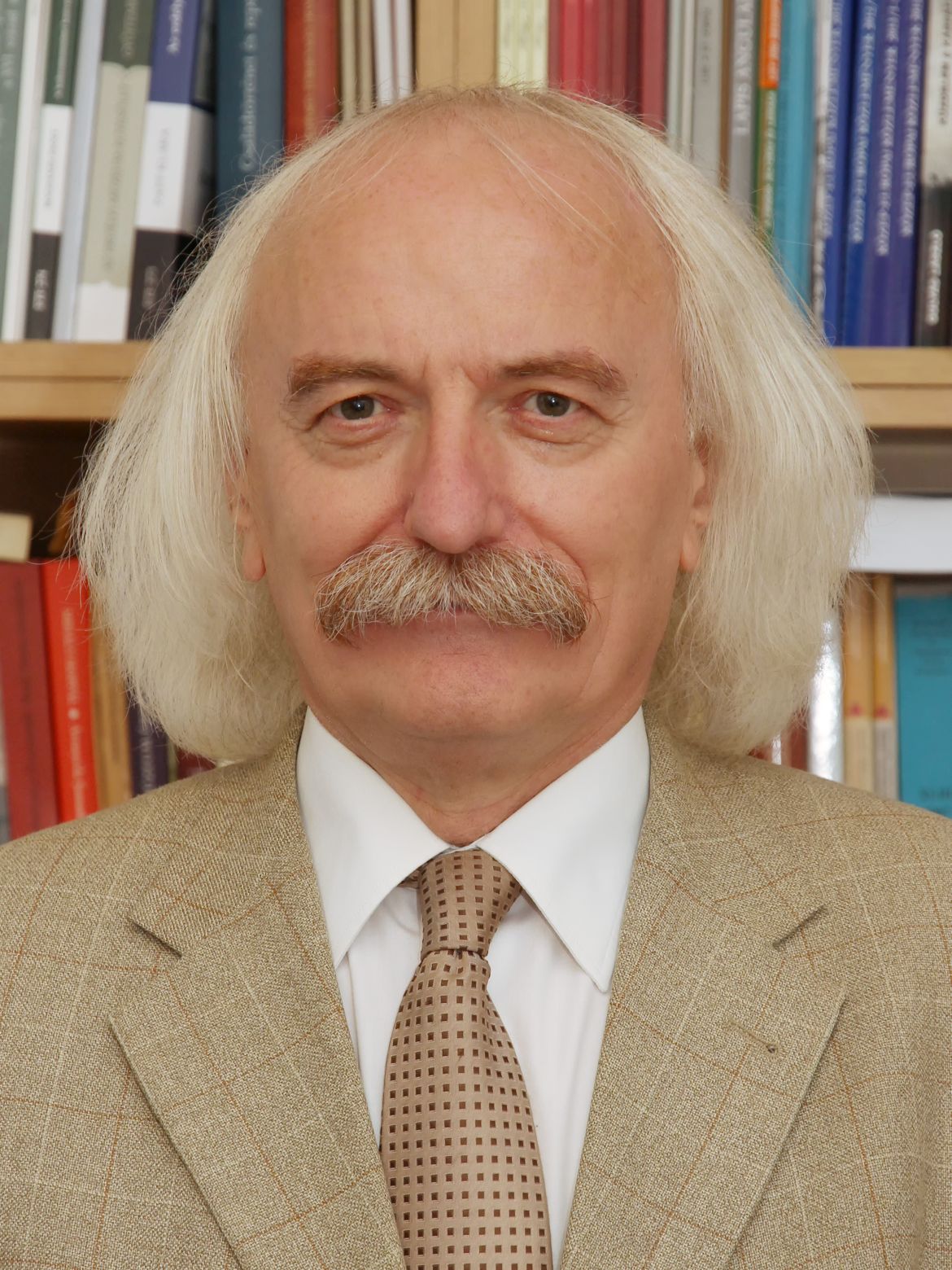 Fodor Pál tételes életrajza (PDF)
Fodor Pál tételes életrajza (PDF)
1955. február 3-án született Aszófőn. 1973-ban érettségizett a balatonfüredi Lóczy Lajos Gimnáziumban. 1979-ben az ELTE BTK-n szerzett történelem és török szakos diplomát. Nős, két felnőtt gyermeke és három unokája van. 1980-tól 1992-ig az MTA Nyelvtudományi Intézete mellett működő Orientalisztika Munkaközösség munkatársa volt. 1992 óta az MTA Történettudományi Intézet (2012-től: MTA BTK Történettudományi Intézet) kutatója, 2012-től az MTA Bölcsészettudományi Kutatóközpont főigazgatója és az MTA BTK Történettudományi Intézet igazgatója.
2007-ben szerezte meg az MTA doktora címet. Szakterülete az Oszmán Birodalom 14–17. századi története, ezen belül különösen az oszmán állam kialakulása, társadalmi és katonai szervezete, az oszmán politikai gondolkodás és államideológia, továbbá a magyarországi török hódítás és berendezkedés. 1979 óta jelennek meg a turkológia és a történettudomány rangos hazai és nemzetközi folyóirataiban és gyűjteményes köteteiben publikációi, amelyek száma meghaladja a 350-et (köztük tíz kötet). Munkásságát a filológiai és történeti kérdések egyidejű vizsgálata jellemzi.
Fontosabb munkái:
- A törökkel való kiegyezés lehetőségének historiográfiai illúziójával leszámoló és az oszmánok európai politikáját elemző monográfiái (Magyarország és a török hódítás. Budapest, 1991; The Unbearable Weight of Empire. The Ottomans and Central Europe – A Failed Attempt at Universal Monarchy (1390–1566). Budapest, 2015), valamint 2006-ban megvédett MTA doktori disszertációja (Vállalkozásra kényszerítve.
- Az oszmán pénzügyigazgatás és hatalmi elit változásai a 16–17. század fordulóján. [História könyvtár. Monográfiák, 21.] Budapest, 2006.), amelyben bizonyította, hogy azok a 16–17. század fordulója körüli változások az Oszmán Birodalom pénzügyi és igazgatási rendszerében, amelyeket a korábbi nemzetközi irodalom válságjelenségekként értékelt, valójában egy átfogó reformpolitika elemei voltak.
- Nevéhez fűződik egy oszmán katonai intézmény felfedezése (The Way of a Seljuq Institution to Hungary: thecerehor. In: Acta Orientalia Academiae Scientiarum Hungaricae 38:3 [1984] 367–399.), az oszmán fejedelmi tükröket elemző írását pedig alapműként értékelik a nemzetközi szakirodalomban (State and Society, Crisis and Reform, in the 15th–17th Century Ottoman Mirror for Princes. In: Acta Orientalia Academiae Scientiarum Hungaricae 40:2–3 [1986] 217–240.).
- Tudományos teljesítményének elismerése a külföldi hivatkozások magas száma, szerkesztői munkássága nemzetközi és hazai szakmai folyóiratokban, meghívása a The Cambridge History of Turkey szerzőgárdájába (Ottoman Warfare, 1300–1453. In: The Cambridge History of Turkey. Volume I. Byzantium to Turkey, 1071–1453. Ed. by Kate Fleet. Cambridge, 2009, 192–226.), valamint jelentős számú nemzetközi publikációja (lásd például válogatott tanulmányainak törökországi kiadását: In Quest of the Golden Apple. Imperial Ideology, Politics, and Military Administration in the Ottoman Empire. [Analecta Isisiana, 45.] Istanbul, Isis, 2000, 304 old.).
A tudományos munka mellett tevékeny szerepet vállal a szakmai közélet különböző testületeiben. Munkásságát több szakmai és állami díjjal, kitüntetéssel ismerték el.
![]()
Pál Fodor was born in Aszófő, Hungary, in 1955. He graduated from the Faculty of Humanities of the Eötvös Loránd University with a degree in Turkish history. He defended his PhD thesis in 1993, and he was awarded the degree of ‘Doctor Academiae Scientiarum Hungaricae’ (DSc) in 2007. Since 1992 he has been a researcher at the Institute of History of the Hungarian Academy of Sciences (since 2019: Eötvös Loránd Research Network) and between 2012 and 2018 he was the director of it. Also, between 2012 and February 2021 he was the Director General of the Research Centre for the Humanities of the HAS. From 1 March 2021 he is the honorary director general of the RCH. He is the co-editor-in-chief of the the periodicals Keletkutatás (Budapest) and Archivum Ottomanicum (Wiesbaden), and a member of the editorial boards of numerous international journals and book series. He specializes in the history of the Ottoman Empire from the early 14th until the late 17th century, including the emergence of the Ottoman state, its social and military organization, Ottoman political thinking, state ideology, the Ottoman conquest of Hungary. Until now, he has published more than 350 studies, including 10 individual volumes.
![]()
Pál Fodor wurde 1955 in Aszófő, Ungarn, geboren. Er absolvierte die philosophische Fakultät der Eötvös Loránd Universität mit einem Abschluss in türkischer Geschichte. Er verteidigte seine Doktorarbeit 1993 und erhielt 2007 den Abschluss "Doctor Academiae Scientiarum Hungaricae" (DSc). Seit 1992 ist er Forscher am Institut für Geschichte der Ungarischen Akademie der Wissenschaften (seit 2019: Eötvös Loránd Research Network) und war zwischen 2012 und 2018 dessen Direktor. Außerdem war er zwischen 2012 und Februar 2021 Generaldirektor des Forschungszentrums für Geisteswissenschaften der UAW/ELRN. Ab dem 1. März 2021 ist er ehrenamtlicher Generaldirektor des RCH. Er ist Mit-Chefredakteur der Zeitschriften Keletkutatás (Budapest) und Archivum Ottomanicum (Wiesbaden) und Mitglied der Redaktion zahlreicher internationaler Zeitschriften und Buchreihen. Er ist spezialisiert auf die Geschichte des Osmanischen Reiches vom frühen 14. bis zum späten 17. Jahrhundert, einschließlich der Entstehung des osmanischen Staates, seiner sozialen und militärischen Organisation, des politischen Denkens der Osmanen, der staatlichen Ideologie und der Eroberung Ungarns durch die Osmanen. Bisher hat er mehr als 350 Studien veröffentlicht, darunter 10 Einzelbände.
